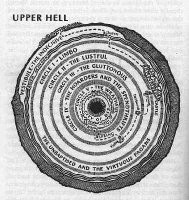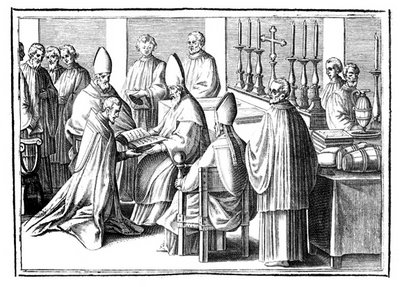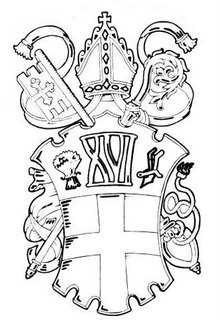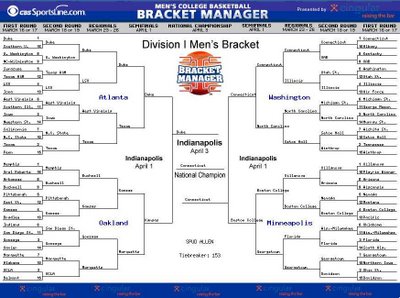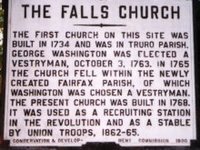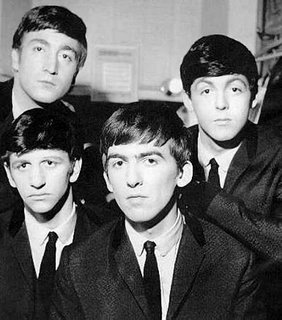Episcopalians to elect new bishop
National division on gay issues felt locally
By JEANNINE F. HUNTER
Staff Writer Published: Friday, 03/17/06
Midstate Episcopalians gather tomorrow to elect a new bishop who many think will face stiff challenges in shepherding a fast-growing yet doctrinally divided diocese.
Like church members elsewhere in the country and around the world, local Episcopalians have sharply different views on the national church's decision to elect an openly gay bishop and to sanction same-sex unions.
"There is more uncertainty about our relationship with the wider Anglican Communion than there used to be," said the Rev. Timothy Jones, senior associate rector of St. George's Church in Belle Meade.
"What will be our relationship, particularly if (the Episcopal Church USA) continues
to ignore some of the pleas to refrain from certain actions? Also, people are really invested in how this election turns out. The different candidates could take us in different directions, not in the near term, but down the road."
Four candidates nominated for bishop of the Diocese of Tennessee, with 51 congregations stretching from atop the Cumberland Plateau in the east to the Tennessee River in the west, are:
• The Rev. Canon F. Brian Cox, IV, rector of Christ the King in Santa Barbara, Calif.
• The Rev. Canon James B. Magness, canon to the ordinary in the Diocese of Kentucky.
• The Rev. Canon Neal O. Michell, canon missioner for strategic development in the Diocese of Dallas.
• The Rev. Winston Charles, rector of Christ Church in Raleigh, N.C.
The winner will need a two-thirds majority of votes cast by the 89 clergy and 131 lay delegates who vote separately beginning at 10:30 a.m. tomorrow at Christ Church Cathedral in Nashville.The bishop-elect then requires ratification by the denomination's General Convention, which meets in June in Columbus, Ohio.
The new bishop will succeed the Right Rev. Bertram Nelson Herlong to become the 11th bishop of the Diocese of Tennessee.
In 2003, the global 77 million-member Anglican Communion fractured after ECUSA approved the election of New Hampshire Bishop Gene Robinson, who has a same sex partner, and authorized the blessing of same-sex unions. More than 20 branches
of the global church broke off relations with ECUSA.
Dozens of U.S. parishes left ECUSA to receive foreign oversight or form new Anglican networks. A resolution to affiliate the Diocese of Tennessee with the Anglican Communion Network, a Pittsburgh-based group of conservative churches, did not pass during the diocese's annual convention in January. About 20% of Midstate Episcopalians belong to the ACN.
The Rev. Patrick Allen, rector of ACN-member St. Joseph of Arimathea in Hendersonville, said tomorrow's election here raises many questions, including whether the diocese will be a "mission-minded, gospel-driven, reaching-out" one that continues to grow. Will it also be a part of the worldwide communion, he asked, or "will we follow the rest of ECUSA into decline and irrelevance?"
"Our goal in the network is to maintain communion with global Anglicans."
The Rev. Ann Walling, assistant to the rector at St. David's in West Meade, said even before 2003, individuals who took moderate and progressive theological positions found themselves "marginalized in terms of inclusion in the life of the diocese."
She said evidence of division includes churches removing the word "Episcopal" from church signs; diminished support to long-standing mission congregations; refusal by some churches to accept female ordination or denial by some clergy to receive Holy Communion with "those of moderate points of view."
"All in all we are in a very distressing situation," she said, adding that many long for a return to a "mode of acceptance of a great diversity of perspectives."
Susan Huggins, spokesperson for Continuing Episcopalians of Tennessee, which opposes affiliation with ACN, said that tomorrow's election could "determine the direction of this diocese."
The Nashville-based organization believes ACN intends to disenfranchise ECUSA, Huggins said. Her group seeks to move the diocese back to the middle ground, she said.
"If we can stay in ECUSA, we can begin to heal this division that we have," said Huggins, a member of St. David's. "We do not believe that breaking down the Episcopal Church is the way to do it."




